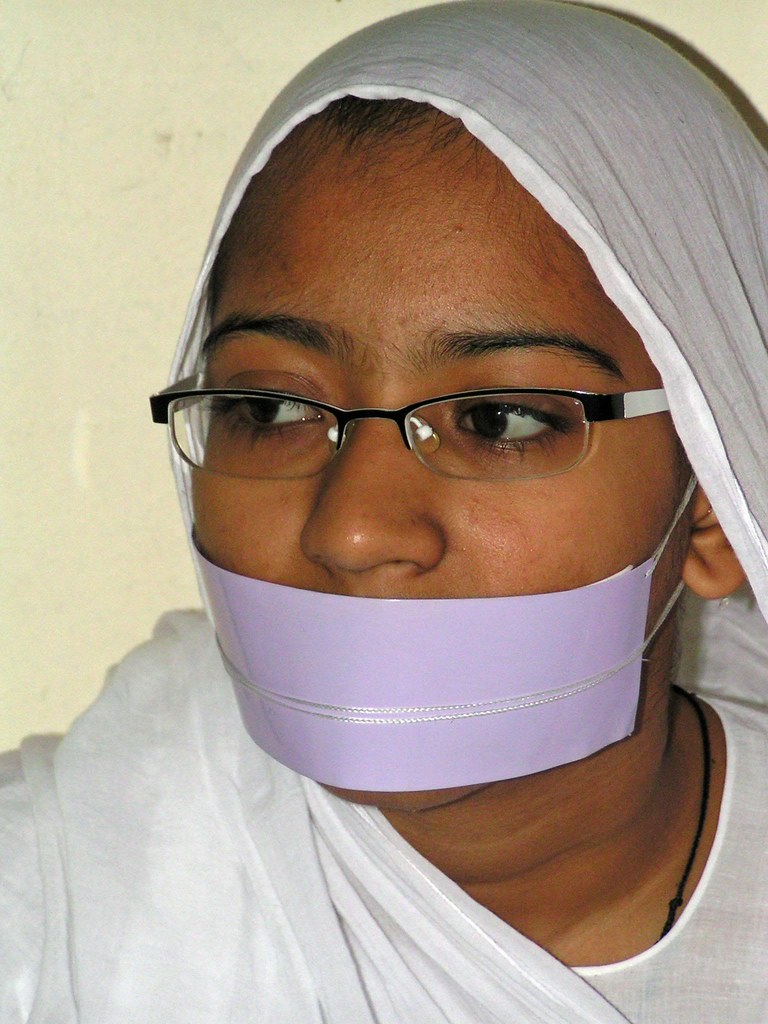
Sadhvi Tanmay Prabha is sixteen years old and a nun, who took her vows when she was only 11. Originating from Chennai in the far South of India, she now travels wherever the community goes.
The reason why she wanted to become a nun is that she wishes to reach enlightenment, and also to improve the quality of living here and now. It was her own wish to take dikṣa when she was 11, but her mother indirectly inspired her. Her father and mother also took dikṣa, on the very same day. Her mother is now a nun in the Punjab in North India, and her father has become a monk in Chennai, South India, so the parents are now thousands of miles apart. The first in the family to raise the idea of taking dikṣa was her mother, who inspired her daughter and only child to do the same, and also her father.
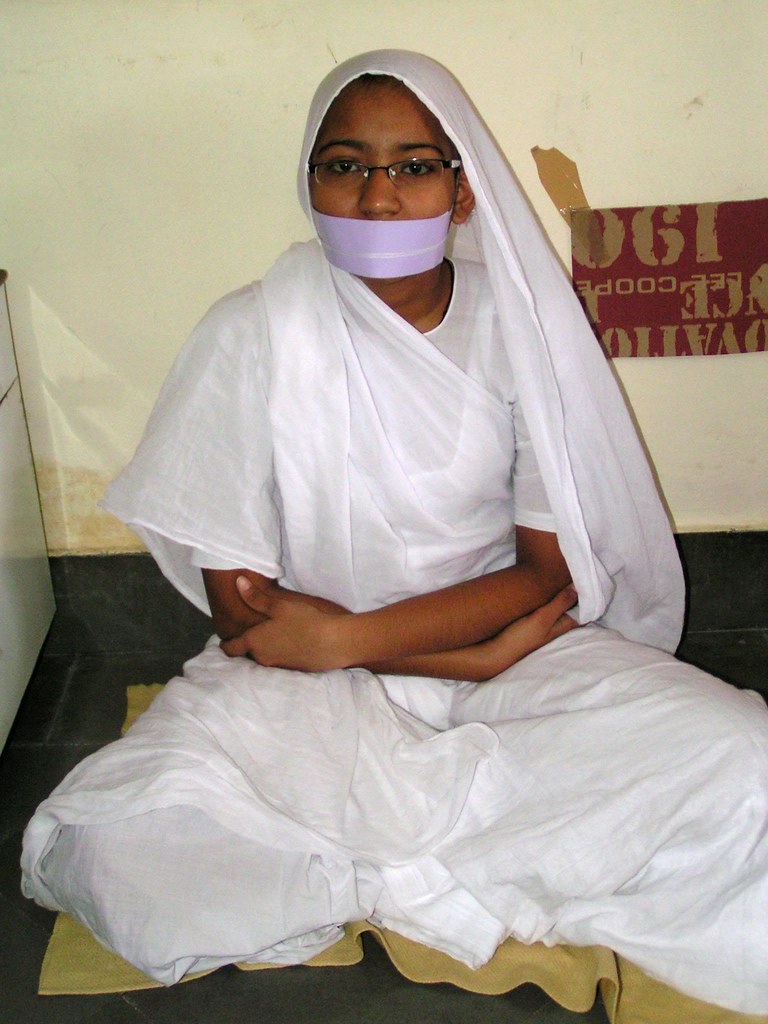
During the initial 1½ years the three were together, and now they still meet often. The last time Sadhvi Tanmay saw her mother is now 1½ year ago. But she says she is not even aware of missing her parents because she is so much involved in the setting, the community of nuns. The whole community is like a big family.
It feels really good to be a nun – her life is uplifted, and the environment in which she lives is very healthy. The people around are very understanding and friendly, and there is no need to think of one’s parents, because she is taken care of by the elder nuns. They look after her well-being and education for now and the future. She tells me that she in completely free of worries. She never felt away from her family.
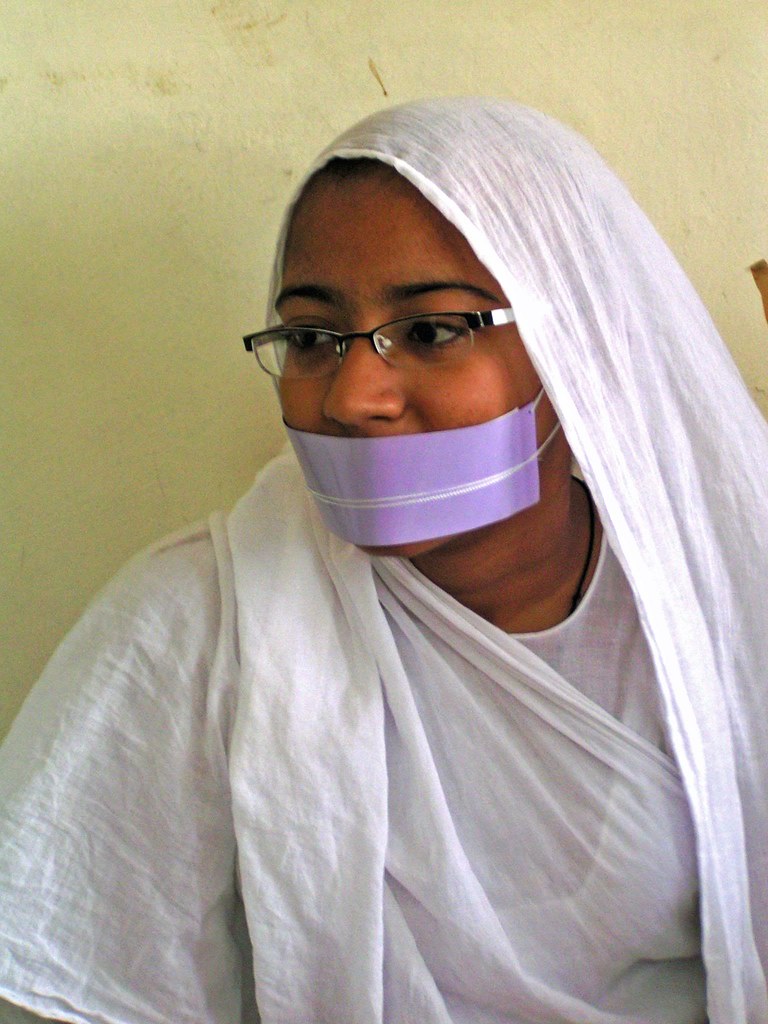
Her daily activities consist, apart from eating, sleeping and so on of learning Prakrit grammar twice a day. Also twice a day she does Arhat Vandana – memorizing the tīrthaṅkaras in a long song. She gets ethical lessons as well, about what one should be aware of. Nuns have to be very careful and mindful regarding the disciplines, such as the way they talk, the way they walk. They are also taught the practice of social interaction, how to be friendly, how to collect alms, how to be careful with visitors.
Nuns do not learn things like typing and computer etc. However samanīs before becoming nuns may have learnt such things. There is no specialized training in the general program, but out of specific interest nuns can choose specializations, for example homeopathy or singing. But our sadhvī does not know yet because she hasn’t yet given it a though - she feels herself too young.
I asked her what the difference is between nuns and monks. She said that nuns tend to be more artistically inclined, for example they are more careful about their handwriting.
The future is still very open. What she will do and which direction she will go depends much on the group leader, Mukhya Niyojika Sadhvi Vishrut Vibha. At present she is preparing for school grade IX, but that is not compulsory – it is out of her own choice. For the purpose of such teaching the young nuns and monks, experts are attracted from outside.
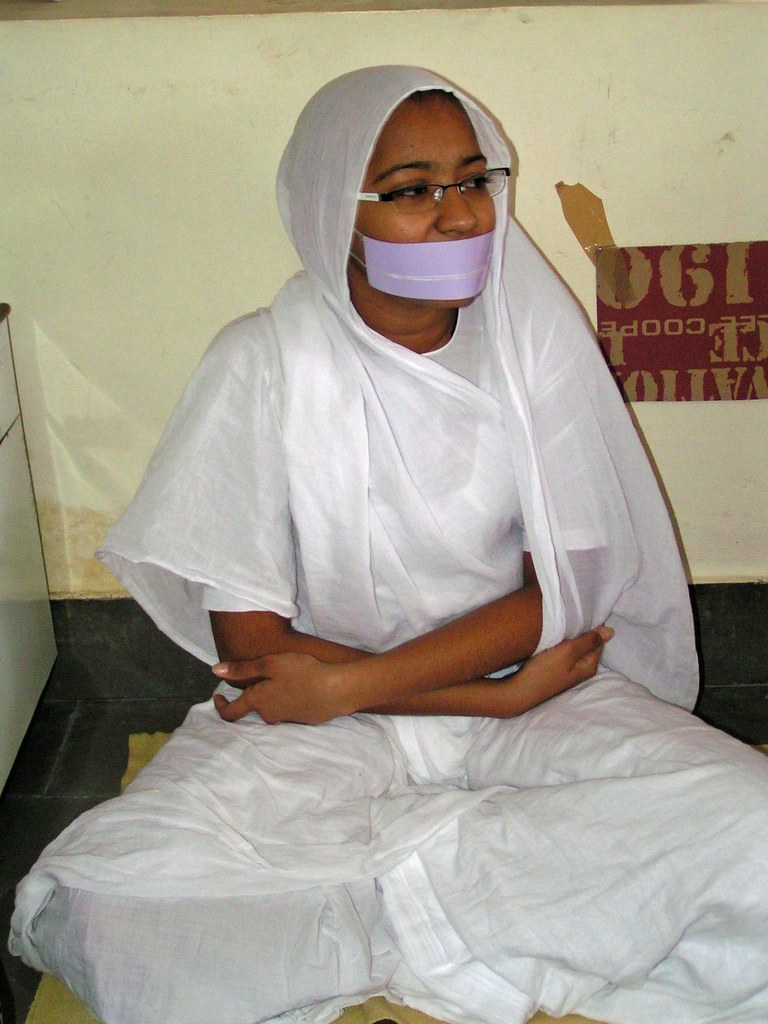
What message would you like to give to others of your age? - Uplift the quality of your life, live a good life; if possible become a nun. She would want to make clear that the spiritual world is equally important as the material world in daily life, and that lay people should try to balance the two.
She would wish to inspire everyone not to steal, not to lie, to be a friend, don’t get angry, and practice the power to control your emotions
But how can one learn to control the emotions (and not merely to suppress them)? – There are many ways:
- Meditation
- Contemplation (anuprekṣa)
- Practice continuously to control emotions
I brought in the point that modern psychology often strongly advises notto control own emotions, but on the contrary to give them way. Suppression may lead to building up to an explosion, or if not expressed may cause physical or mental diseases. Sadhvī answers that if anger occurs she will move away. Anger is because of Ego only.
 Dr. Rudi Jansma
Dr. Rudi Jansma
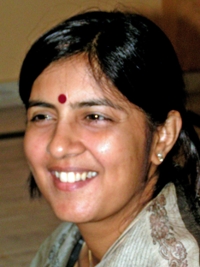 Shivani Bothra
Shivani Bothra